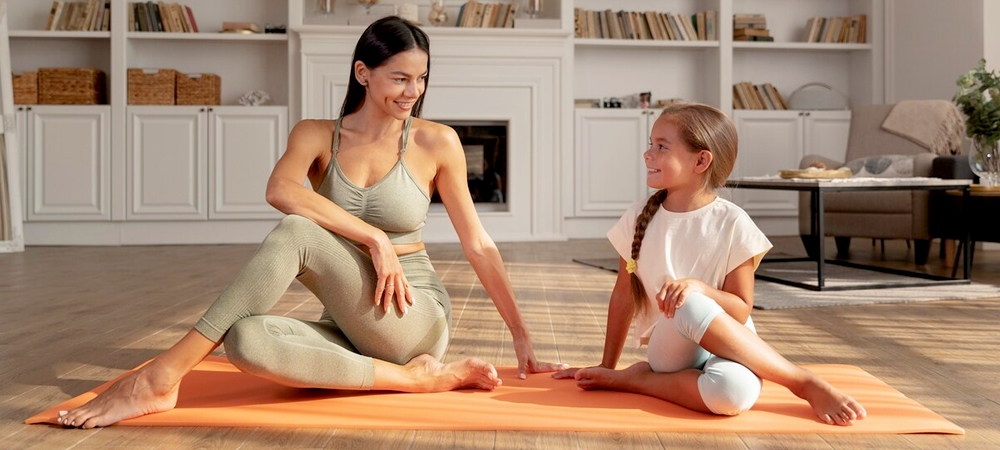Meditation is a powerful tool for reducing stress, offering a natural and effective way to counter the body’s stress response. Stress triggers the body’s fight-or-flight mechanism, flooding it with cortisol and adrenaline. This practice counters these effects by activating the parasympathetic nervous system, promoting relaxation and reducing tension. Regular practice has been shown to lower heart rate, improve sleep, and enhance emotional resilience, making meditation a cornerstone of stress management.

Understanding How Meditation Reduces Stress
The process interrupts the cycle of overthinking and physiological tension, fostering a state of mindfulness and calm that allows the brain to reset. Scientific research consistently highlights the benefits of meditation, particularly in reducing cortisol levels, which are often elevated during times of stress. By cultivating a state of relaxation, this practice enables individuals to handle challenges with clarity and balance.
Choosing the Right Meditation Technique
The effectiveness often depends on selecting a technique that resonates with you. There are several beginner-friendly methods, each offering unique benefits:
- Mindfulness Meditation: Focuses on staying present in the moment by observing your thoughts and feelings without judgment. This approach helps break the cycle of rumination.
- Guided Meditation: Involves following verbal instructions from a teacher or app, making it an accessible way to begin.
- Breath Awareness: Centers attention on the rhythm of your breathing, fostering calmness and focus.
- Body Scan: Promotes relaxation by progressively focusing on different parts of your body, releasing physical tension.
Choose a method that fits easily into your lifestyle. Experimenting with different styles can help you find the most effective practice tailored to your needs.
Setting Up a Comfortable Space
Creating a conducive environment enhances the effectiveness of meditation. Even a simple, quiet corner in your home can become a sanctuary for mindfulness. Here’s how to create your space:
- Comfortable Seating: Use a cushion or chair that supports good posture.
- Calming Elements: Incorporate items like candles, essential oils, or soft lighting to create a tranquil atmosphere.
- Minimal Distractions: Keep the area free from clutter and noise to focus on your practice.
The goal is to establish an environment that promotes peace and relaxation, reinforcing the benefits of meditation.
How to Meditate: Step-by-Step for Beginners
Starting a meditation practice can feel daunting, but following a simple process can make it accessible and rewarding:
- Find a Quiet Spot: Choose a location where you won’t be interrupted.
- Set a Timer: Begin with 5–10 minutes and gradually increase as you become more comfortable.
- Sit Comfortably: Sit cross-legged on the floor or on a chair with your feet flat on the ground.
- Focus on Your Breath: Close your eyes and take slow, deep breaths. Observe the sensation of air entering and leaving your nose.
- Acknowledge Distractions: If your mind wanders, gently bring your focus back to your breath.
- End Gently: When the timer goes off, slowly open your eyes and take a moment to reflect before continuing your day.
Tips to Stay Consistent
Consistency is crucial to unlocking the full benefits of meditation. Here are some strategies to help you maintain your practice:
- Set a Routine: Meditate at the same time each day, such as first thing in the morning or before bed.
- Use Apps: Platforms like Headspace or Calm offer guided sessions designed for beginners.
- Track Your Progress: Keep a journal to note changes in your stress levels and reflect on how meditation is improving your life.
- Pair with a Habit: Link meditation to an existing habit, like brushing your teeth or drinking tea, to make it a seamless part of your day.
The Long-Term Benefits of Meditation
This practice provides both immediate and long-term benefits. With regular practice, you can experience:
- Reduced Anxiety and Depression: It fosters emotional balance, reducing symptoms of anxiety and depression over time.
- Enhanced Focus and Memory: Practicing meditation improves cognitive function and mental clarity.
- Improved Emotional Regulation: This enhances your ability to process emotions calmly and effectively.
- Better Physical Health: It lowers blood pressure, reduces inflammation, and promotes overall well-being.
Expanding Your Practice
Once you establish a routine, you can explore advanced techniques to deepen your meditation practice. Methods like mantra meditation, transcendental meditation, or loving-kindness meditation can add new dimensions to your experience. Each approach offers unique pathways to stress relief, fostering personal growth and emotional resilience.
The Science Behind Meditation
Numerous studies validate its effectiveness. Researchers have observed measurable changes in brain activity, such as increased activity in areas associated with positive emotions and decreased activity in the amygdala, which is linked to stress. These findings underscore why meditation is not only a practice but a scientifically supported tool for enhancing mental health.
Integrating Meditation into a Busy Life
Many people hesitate to start because they feel too busy. However, even brief sessions can make a difference. Consider these time-efficient approaches:
- Micro-Meditations: Practice for 1–2 minute intervals during your day.
- Walking Meditation: Turn a daily walk into a mindfulness exercise.
- Mindful Breaks: Pause between tasks to take a few deep breaths and reset.
By finding small windows of time, you can integrate this practice seamlessly into your schedule.

Images provided by Freepik
Transforming Stress Through Meditation
Meditation is more than a tool—it’s a lifestyle shift. By dedicating time to this practice, you invest in your mental and emotional well-being. The journey may begin with small steps, but its impact can be profound, offering a path to a more balanced and fulfilling life. Embrace meditation today, and unlock its potential to transform how you navigate challenges and find inner peace.
How to Improve Your Sleep Naturally: 8 Proven Tips








